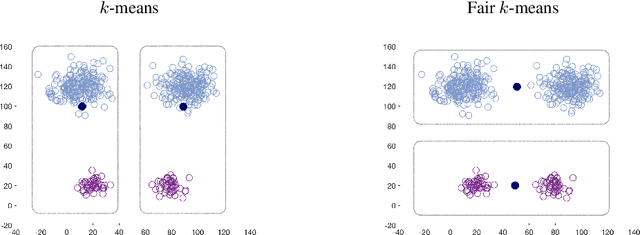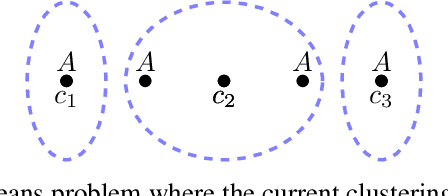Fair k-Means Clustering
Paper and Code
Jun 17, 2020



We show that the popular $k$-means clustering algorithm (Lloyd's heuristic), used for a variety of scientific data, can result in outcomes that are unfavorable to subgroups of data (e.g., demographic groups). Such biased clusterings can have deleterious implications for human-centric applications such as resource allocation. We present a fair $k$-means objective and algorithm to choose cluster centers that provide equitable costs for different groups. The algorithm, Fair-Lloyd, is a modification of Lloyd's heuristic for $k$-means, inheriting its simplicity, efficiency, and stability. In comparison with standard Lloyd's, we find that on benchmark data sets, Fair-Lloyd exhibits unbiased performance by ensuring that all groups have balanced costs in the output $k$-clustering, while incurring a negligible increase in running time, thus making it a viable fair option wherever $k$-means is currently used.
 Add to Chrome
Add to Chrome Add to Firefox
Add to Firefox Add to Edge
Add to Edge